- Daniel K. Inouye Asia-Pacific Center for Securi...
- Patriot Eagle II
- Block 3. Sub-Regional Perspectives of the U.S....
Block 3. Sub-Regional Perspectives of the U.S. Strategic Approach to the Indo-Pacific
Overview:
Overview This panel will explore how nations in the Indo-Pacific region view the U.S. concept and execution of its “Free and Open Indo-Pacific" framework. Views are as diverse as the region itself, with individual nations, sub-regions, and formal and informal groupings all developing and evolving their own perceptions and reactions to the U.S. strategy since its inception. These views have been shaped not just by U.S. actions (or non-action) but just as importantly by the Indo-Pacific strategies and policies of other great and middle powers, both in and outside the region. Add U.S.-China strategic competition to the mix, as well as the global (like climate change), regional (like border disputes), and national (like economic development) requirements of individual nations and sub-regions, and the daunting challenges underlying a “Free and Open Indo-Pacific” becomes clearer. This panel will open by outlining sub-regional views of the United States’ strategic approach to the Indo-Pacific (Northeast Asia, Southeast Asia, South Asia, and Oceania) but that is only where our discussion will begin!
Speaker's Bios:
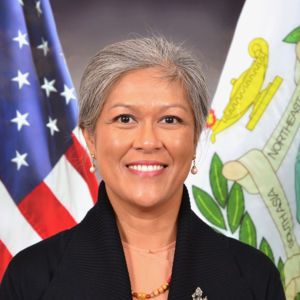
Dr. Miemie Winn Byrd joined the Asia-Pacific Center for Security Studies in 2007. Dr. Byrd researches, teaches, and publishes in the areas of U.S.-Myanmar (Burma) relations; security dynamics in Southeast Asia; economics and security linkages; rising inequality and its implication on security; the roles of private-sector, women, and education in socioeconomic development; civil-military operations; leadership; organizational development & innovation; and transformational learning & adult education.
Email: byrdm@apcss.org
Dr. Miemie Byrd's Bio

Professor Shyam Tekwani joined the Daniel K. Inouye Asia-Pacific Center for Security Studies (DKI APCSS) in July 2009 as Associate Professor. Prior to his shift to academia, Prof. Tekwani had an extensive career as a journalist in Asia, which included his exclusive work as an embed among the Liberation Tigers of Tamil Eelam (LTTE) in Sri Lanka. His exclusive reportage on the ethnic conflict in Sri Lanka which he has covered exhaustively since its inception in 1983 has been published globally. Prof. Tekwani has conducted field work on terrorism and insurgency in South and Southeast Asia. His shift to academics after 15 years as a journalist converged with the parallel shift of extremists and terrorists to the Internet in the early-90s. His early academic work focused on communication strategies of terrorist and insurgent groups and their use of new media in pursuit of shaping these goals. Prof. Tekwani is currently completing his book, Serendip to Sri Lanka, on the Tamil Tigers and the ethnic conflict in the island nation.
Email: tekwanis@apcss.org
Prof. Shyam Tekwani's Bio
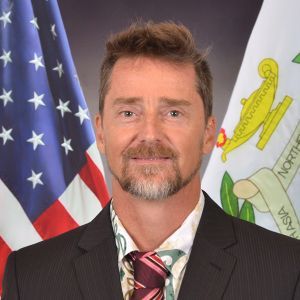
Dr. Deon Canyon joined Daniel K. Inouye Asia Pacific Center for Security Studies (DKI APCSS) in 2016 after working at the University of Hawaii, Curtin University and James Cook University where he focused on global health protection, health security and crisis management. A Hawai‘i resident since 2011, Dr. Canyon is well regarded as a crisis scholar for his work on vector-borne disease, bioterrorism preparedness, crisis management auditing, and crisis leadership.
Email: canyond@apcss.org
Dr. Deon Canyon's Bio
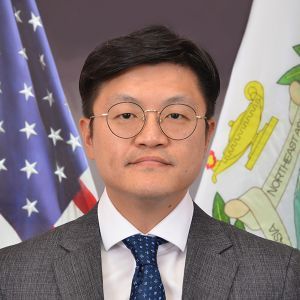
Dr. Sungmin Cho's area of research interests covers China-Korean Peninsula relations, North Korea’s nuclear program, Korean unification, and the US alliance in East Asia. Dr. Cho also closely follows the domestic politics of China, Taiwan, and North Korea. Prior to arriving at DKI APCSS, Dr. Cho was a lecturer for the Asian Studies Program at Georgetown University from 2016 to 2018.
Email: chos@apcss.org
Dr. Sungmin Cho's Bio
Resources:
South Asia
- How President Biden can reshape U.S. Relations in Greater South Asia. Atlantic Council, November 2020
- Strategic Competition: Why Pakistan Matters. Saira Yamin, Daniel K. Inouye Asia Pacific Center for Security Studies Security Nexus, July 15, 2020
- Inclusive Governance: Lessons from History. Saira Yamin. Alexander L. Vuving, ed., Hindsight, Insight, Foresight: Thinking about Security in the Indo-Pacific (Honolulu, HI: Daniel K. Inouye Asia-Pacific Center for Security Studies, 2020)
- China's Influence on Conflict Dynamics in South Asia. United States Institute of Peace, December 2020
- The U.S. and the Need for a New Block in South Asia. Anil Sigdel, Real Clear Defense, March 2019
- South Asia Dialogues: Women in Security Roundtable on U.S.-Pakistan Relations. (video)
- Talmudic debates on India's strategic autonomy an artefact of a bygone era, says strategic thinker Dhruva Jaishankar. Sreemoy Talukdar, First Post, 23 October 2020 Southeast Asia
Southeast Asia
- The Southeast Asia Climate Outlook. ISEAS (2020)
- Don’t make us choose. Stromseth (2019)
- The State of Southeast Asia Survey. ISEAS (2020)
- Southeast Asian perspectives on US-China competition. Connelly et al (2017) Northeast Asia
Northeast Asia
- Just Another Paper Tiger: Chinese Perspectives on the U.S. Indo-Pacific Strategy. Joel Wuthnow, Institute for National Strategic Studies, 3 June 2020
- 'Indo-Pacific’ Coined to Contain China, India Smart to Not to Get Into It. Sergei Lavrov, The Wire, 15 January 2020
- Japan’s Indo-Pacific Vision Will Endure. Tomohiko Satake, Tokyo NIDS, East Asia Forum, 19 September 2020
- Charting Convergence Exploring the Intersection of the U.S. Free and Open Indo-Pacific Strategy and Taiwan’s New Southbound Policy. Bonnie Glaser et al, CSIS, 16 December 2019 Oceania
- What Does Trump’s Indo-Pacific Strategy Mean for Russia. Anton Tsvetov, Moscow Center for Strategic Research, The Diplomat, 17 April 2018
- South Korea and the Free and Open Indo-Pacific Strategy. Andrew Yeo, CSIS, 20 July 2020
- Japan, Mongolia to cooperate on ‘Free and Open Indo-Pacific’. Mari Yamaguchi, A, 9 October 2020
Oceania
- The Indo-Pacific Contest: It could be time for fresh ideas on Allied security Cooperation. John Blaxland and Jennifer D.P. Moroney, PACNET Pacific Forum, 7 July 2020
- The impact of COVID-19 on livelihoods in Papua New Guinea. Kopel E., Asia & The Pacific Policy Society, 12 June 2020
- The Pacific Islands Forum at 50. Chanramohan B., The Diplomat, 19 August 2019
- Strengthening the U.S.-Pacific Islands Partnership. Amy Searight, Brian Harding, Kim Mai Train, CSIS, May 2019
- Voices of Pacific leaders: COVID-19 and the path to recovery. Keen M., Asia & The Pacific Policy Society, 22 June 2020
- The China shift in Pacific trade. Dornan M., Muller S., DevPolicyBlog, 15 November 2018
- Perceptions of indigenous security practitioners on China’s geostrategic activities in the Pacific. Canyon D., Security Nexus, April 2020
About This Author

Other posts by this author
-
Read more
Overview
The geopolitical structure of the Indo-Pacific could be said to be divided into four broad features. The first of these is the maritime nature of the system, which compels both internal and external powers to align around the geography of the system and sub-regional systems. The second feature is the US Alliance System (also known as the San Francisco System); the third is the integration that is taking place under regional architectures (such as ASEAN and PIF); and the fourth is the rise of large regional powers (such as China and India). The fact that neither China nor India quite belong to either the US Alliance system or to regional architecture makes them outliers. Also, the fact that China – historically a land-based power – is developing itself into a maritime economic and military power while also incrementally challenging the norms and rules upheld by the San Francisco System, defines many of the tensions, diplomacy, and crises of the region. Overall, the region could be said to be represented by the “Asian Paradox”: it is home to both the fastest growing economies while also representing some of the world’s most troubling security issues.
Objectives
- Examine major features and currents that shape geopolitical landscape in the Indo-Pacific.
- Examine key factors influencing great power competition in the Indo-Pacific.
Speakers' Bios:
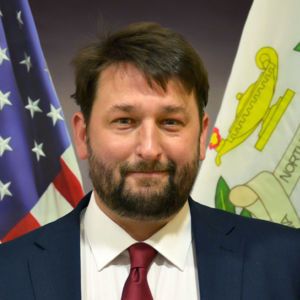
Dr. John Hemmings' areas of focus at DKI APCSS are Northeast Asian security, Japanese defence policy, the Indo-Pacific concept, alliance theory, and US alliances. He takes a special interest in 5G and national security. He was the founding Director of the Asia Studies Centre and Deputy Research Director at the Henry Jackson Society, a trans-Atlantic think tank in London. While he was at the Henry Jackson Society, Dr. Hemmings co-authored a study on Huawei, 5G and the Five Eyes, multiple studies on the Indo-Pacific, and coordinate a project on diplomacy on the Korean peninsula.
Email: hemmingsj@apcss.org
Dr. John Hemming's Bio
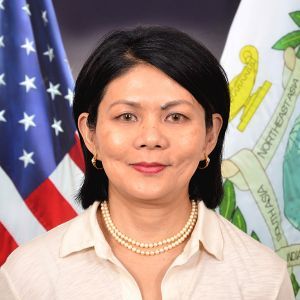
Dr. Virginia Bacay Watson's areas of interest and publication include science, technology and security in the Asia-Pacific region, water security, and Southeast Asia geopolitics. She has held appointments at the University of Denver and Colorado School of Mines and served as an exchange faculty for the University of Colorado in Beijing, China, as well as a consultant on issues pertaining to her professional areas of interest. She is the editor of DKI APCSS’ first e-book, The Interface of Science, Technology, and Security (2012). Dr. Watson holds a master’s degree in Asian Studies from Cornell University and a doctorate in International Studies from the University of Denver’s Josef Korbel School of International Studies.
Email: watsonv@apcss.org
Dr. Virginia Watson's Bio
Resources:
- Critical technologies and the Indo-Pacific: A new India-Australia partnership
- Malcolm Davis, “Australia as a rising middle power,” (Singapore: RSIS Working Papers No 328, April 2020)
- The Great Game 2.0 in Asia: Stakes go up
- The State of Southeast Asia: 2021 Survey Report
- Jeffrey Ordaniel, Advancing a rules-based maritime order in the Indo-Pacific (Pacific Forum, Issues and Insights, July 2021 V21 SR2).
- Asia Maritime Transparency Initiative
- Interim National Security Strategic Guidance
- Summary of the 2018 National Defense Strategy
- Victor Cha, Powerplay: The origins of the American alliance system in Asia (New Jersey: Princeton University Press, 2016).
- Elizabeth Economy, The Third Revolution: Xi Jinping and the new Chinese state (University of Oxford: Oxford University Press, 2020).
- Lawrence Freedman, The Future of War: A history (UK: Penguin Random House, 2017).
- John Hemmings and Peter Varnish, "Evolving the Five Eyes: Opportunities and Challenges in the New Strategic Landscape" (MacDonald Laurier Institute, September 2021).
- "China's Interests in Afghanistan" (Council of Geostrategy, August 2021).
- "US Command and Control Across the Spectrum of Gray-Zone Operations" (National Bureau of Asian Research, Special Report, May 2021).
- Matthew Kroenig, The Return of Great Power Rivalry (University of Oxford: Oxford University Press, 2020).
- Mira Rapp-Hooper, Shields of the Republic: The triumph and peril of America’s alliances (Cambridge, MA: Harvard University Press, 2020).
- Anne-Marie Slaughter, The Chessboard and the Web (Yale University Press, 2017).
- Virginia Watson, “Modernizing Alliances,” in Advancing a rules-based maritime order in the Indo-Pacific (Pacific Forum Issues and Insights, July 2021 V21 SR2) 34-37.
- Virginia Watson, “The Fourth Industrial Revolution and its Discontents: Governance, Big Tech, and the Digitization of Geopolitics,” in Alexander Vuving, ed., Hindsight, Insight, Foresight: Thinking about security in the Indo-Pacific (Honolulu: DKI APCSS September 2020): 38-48.
-
Read more
Overview:
As the primary elements of national power and influence, Defense, Development, and Diplomacy (3D) provide the foundation for promoting national security interests abroad. In the United States, 3D efforts are led respectively by the Department of Defense, the U.S. Agency for International Development and the Department of State. While these organizations share the National Security Strategy as their highest-level strategic guidance, they have distinct perspectives on the trends, challenges and opportunities facing the Indo-Pacific region. Their responses to these conditions also vary, based on their distinct missions, authorities and organizational cultures. Understanding and aligning these elements into a holistic vision is a prerequisite to advancing the U.S. strategic approach to the Indo-Pacific region.
Objectives:
- Understand the 3D roles of defense, diplomacy and development to advancing U.S. strategic objectives in the Indo-Pacific region.
- Evaluate trends, opportunities, & challenges in advancing U.S. objectives through the lenses of defense, development and diplomacy.
Speaker's Bios:
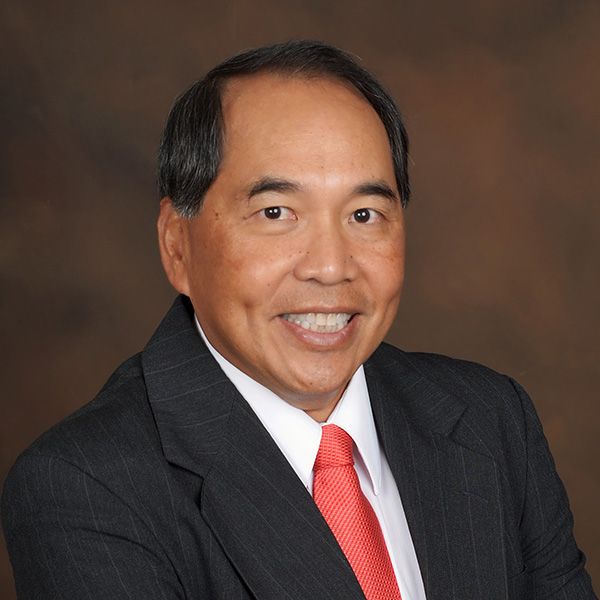
Pete Gumataotao became the Director, Daniel K. Inouye Asia-Pacific Center for Security Studies (DKI APCSS) in February 2018. A native of Guam, RADM (Ret) Gumataotao joined the Navy in 1976 and attended the Naval Academy Preparatory School in Newport, Rhode Island. He is a 1981 graduate of the United States Naval Academy and earned his Master of Arts in Strategic Studies from the U.S. Naval War College in 1994. His U.S. Naval decorations include the Defense Distinguished Service Medal, Defense Superior Service Medal, Legion of Merit (five awards), Meritorious Service Medal (four awards), and other personal, unit, and campaign awards.
Email: gumataotaop@apcss.org
Director Gumataotao's Bio
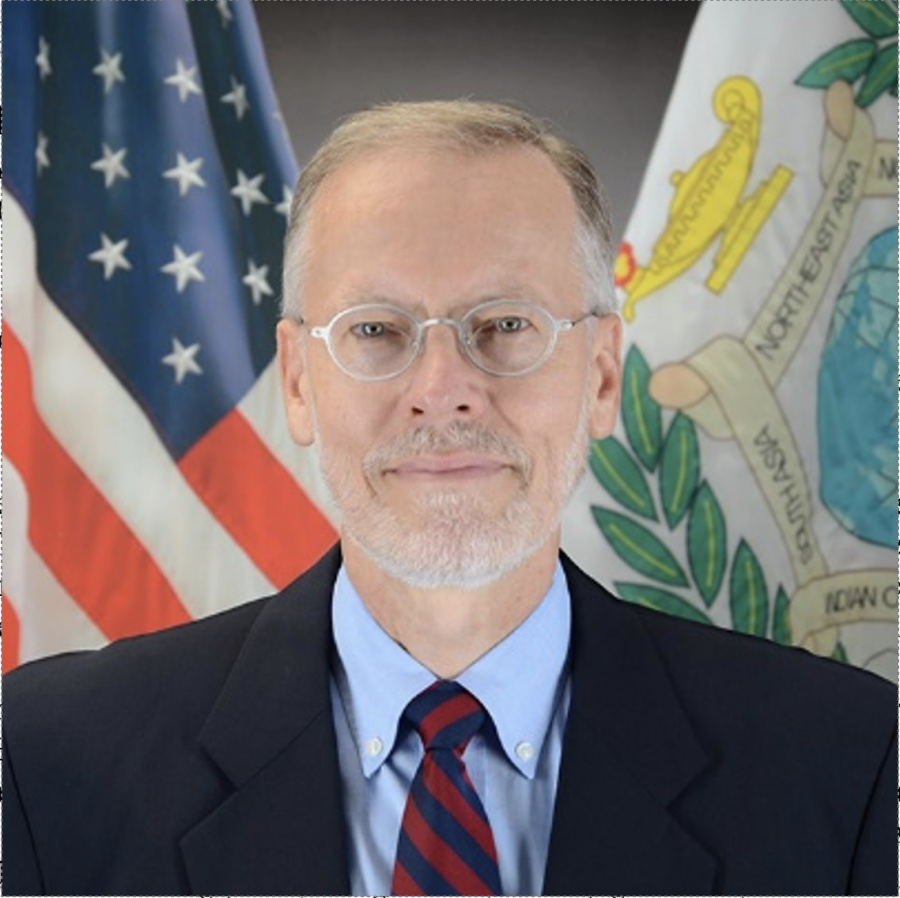
Dr. W. Brent Christensen joined the Asia-Pacific Center for Security Studies (APCSS) in September 2021. This is the second time he has served in this role at APCSS, where he served previously 2015-17. Dr. Christensen has been in the U.S. Foreign Service for over 30 years and most recently served as the Director of the American Institute in Taiwan 2018-21. He was Deputy Director of the American Institute in Taiwan 2012-15. Prior to that, he was Director of the State Department’s Office of Taiwan Coordination. He has served three assignments at the U.S. Embassy in Beijing, the most recent being Environment, Science, Technology, and Health Counselor. Dr. Christensen is a career member of the Senior Foreign Service and holds the personal rank of Minister-Counselor. He earned an M.A. in East Asian Studies from George Washington University, a B.A. in Chinese language and literature from Brigham Young University, and a DMD degree from the Oregon Health and Sciences University. He has received a number of State Department awards, including the 2020 Charles E. Cobb Award for Initiative and Success in Trade Development.
Email: christensenw@apcss.org
Dr. W. Brent Christensen's bio

Lori Forman joined the Daniel K. Inouye Asia-Pacific Center for Security Studies (DKI APCSS) in 2011, bringing a unique international background in corporate, government, academic and non-profit sectors. An expert on international economic development and foreign aid, civil society and public-private partnerships, Dr. Forman earned a Ph.D. from the Faculty of Law, Keio University, and a Master in Public Policy from Harvard University. Prior to joining APCSS Lori held senior corporate positions with Microsoft and Dubai Holding. In government she held senior positions including the U.S. Alternate Executive Director on the Board of Directors of the Asian Development Bank and Assistant Administrator for Asia and Near East of the US Agency for International Development. Dr. Forman also served in the NGO sector for 11 years, as the Director of the Japan Program of The Nature Conservancy, one of the world’s largest environmental organizations. Dr. Forman began her post-graduate career in Washington D.C., serving as the Senior Political Analyst for the White House pollster.
Email: formanl@apcss.org
Dr. Lori Forman's Bio
Resources:
US Official Documents
- Interim U.S. National Security Strategy
- U.S. National Defense Strategy (2018)
- Asia Reassurance Initiative Act 2018
US Views on What Should be in the Next NDS
- From The Atlantic Council
- From the Center for New American Security
- From Brookings Institution
- From War on the Rocks
Non-US views on What Should be Part of the Next US Indo-Pacific Strategy
- Sasakawa Peace Foundation -- Biden’s Indo-Pacific Strategy: Expectations and Challenges
- The Diplomat – Beyond Alliance Repair: Biden Must Do More in the Indo-Pacific
- The United States Studies Centre – Correcting the Course: How the Biden Administration Should Compete for Influence in the Indo-Pacific
- ISEAS – The Quad and the Indo-Pacific: Going Slow to Go Further
- Lowy Institute – Biden’s Doughnut-Shaped Indo-Pacific Strategy
- German Marshall Fund – U.S.-Europe-India Cooperation in the Indo-Pacific
3D Approaches Outside the US
-
Read more
Overview:
This panel looks at three members of the Quad and examines their approaches toward the Indo-Pacific, both as a framework for understanding the region and as a strategy for managing the risks inherent in China's rise. Japan's role in constructing and developing the Indo-Pacific concept is examined by Dr Hemmings, and its implications for its wider grand strategy. Dr. Al Oehlers looks at how Australia further developed the concept in its strategy for the region, propelling it into the mainstream. Finally, Dr Sitaraman examines India's role in shaping the concept and its privileged position inherent in the new framing. How does India's rise impact regional dynamics? Lastly, the Panel will examine the impact of the emerging AUKUS defense collaboration. Is the AUKUS just a nuclear submarine deal or is it something more?
Objectives:
- Examine Australia, India and & Japan’s strategic approaches to the Indo-Pacific and their practices of diplomacy, development, and defense to advance their security objectives.
- Examine trends, opportunities, & challenges in advancing partners’ strategic approaches to the Indo-Pacific.
Speakers' Bio:
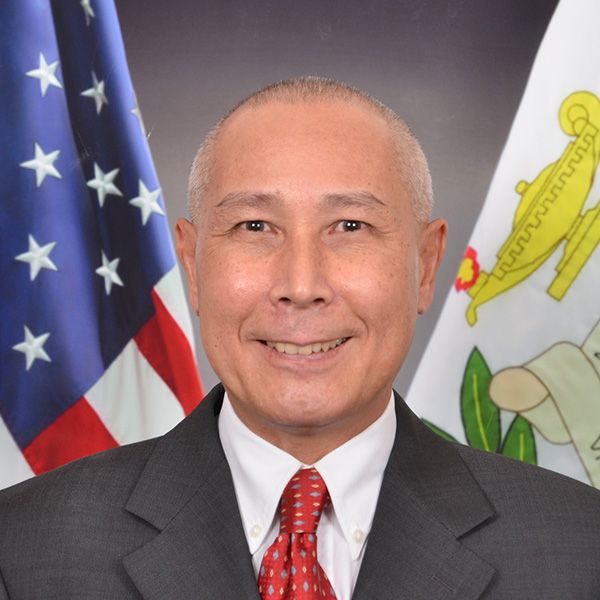
Dr. Alfred Oehlers is a specialist in the political economy of economic growth and development, with reference to the countries of the Asia-Pacific region. His teaching has ranged widely during his career, spanning courses as diverse as international business, economics, politics, public policy, international relations, Asian studies, history, and other social sciences. He has taught at Massey University in New Zealand, Macquarie University, the University of Sydney in Australia, and the Institute of Development Studies at the University of Helsinki, Finland.
Email: oehlersa@apcss.org
Dr. Al Oehlers' Bio
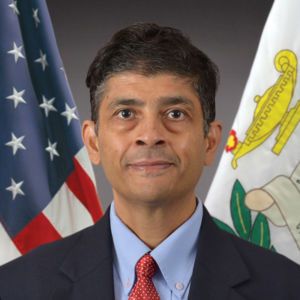
Dr. Srini Sitaraman's focus is on the Indo-Pacific Security with a particular focus on South Asia, Regional Conflict, and India-China Relations. He is also interested in New Technologies & International Security, Internet and Digital Diplomacy, Nonproliferation, and the United Nations and International Law.
Email: sitaramans@apcss.org
Dr. Srini Sitaraman's Bio
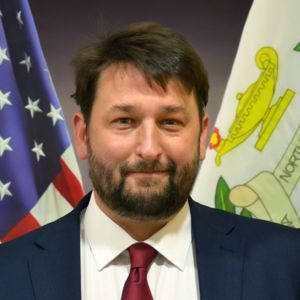
Dr. John Hemmings' areas of focus at DKI APCSS are Northeast Asian security, Japanese defence policy, the Indo-Pacific concept, alliance theory, and US alliances. He takes a special interest in 5G and national security. He was the founding Director of the Asia Studies Centre and Deputy Research Director at the Henry Jackson Society, a trans-Atlantic think tank in London. While he was at the Henry Jackson Society, Dr. Hemmings co-authored a study on Huawei, 5G and the Five Eyes, multiple studies on the Indo-Pacific, and coordinate a project on diplomacy on the Korean peninsula.
Email: hemmingsj@apcss.org
Dr. John Hemmings' Bio
Resources:
- Oriana Skylar Mastro and Zack Cooper, “In defence of AUKUS,” Lowy Institute, The Interperter, 5th October 2021
- C. Raja Mohan, “AUKUS, the Quad, and India’s Strategic Pivot,” Foreign Policy, 23rd September 2021
- AUKUS and the Quad: Shifting Power Play in the Indo-Pacific, Observer Research Foundation (ORF), 30th September 2021
- Prime Minister Scott Morrison, “A World Order that Favours Freedom”, address to the Perth USASIA Center, 9 June 2021
- Jane Hardy, "Australia's Role in the Indo-Pacific," Indo-Pacific Defense Forum, November 11, 2019
- Department of Foreign Affairs and Trade, Australia, "2017 Foreign Policy White Paper," Canberra: DFAT, 2017, (see "Overview" pp.1-8)
- Hiroyuki Suzuki, “Japan’s Role in a Multipolar Indo-Pacific", CSIS Commentary, 23 October, 2020
- Department of Defence, Australia, "2020 Defence Strategic Update", Canberra: MoD, 2020, (see "Executive Summary" pp.5-7, and "Chapter 1: Australia's changing strategic environment" pp.11-17)
